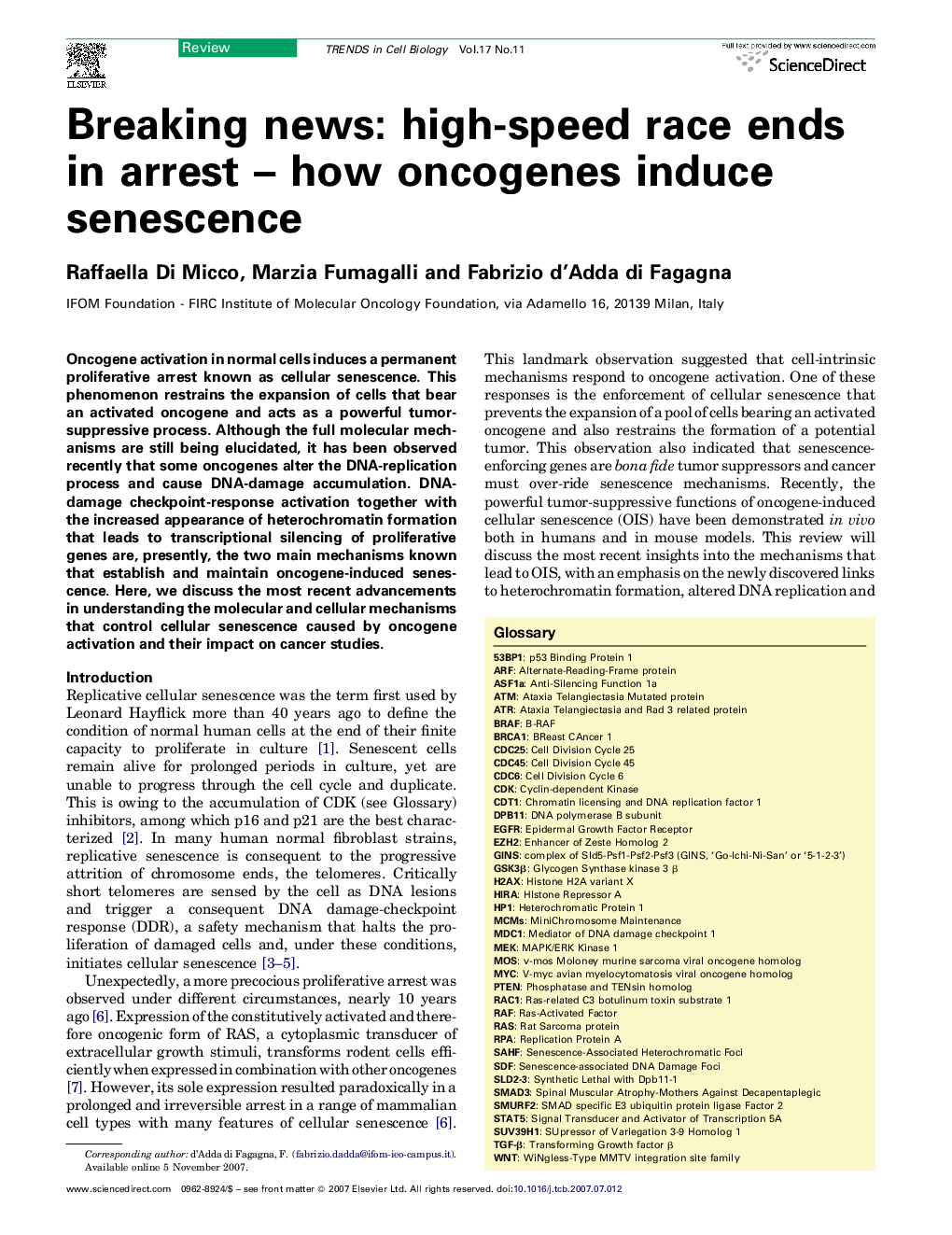| Article ID | Journal | Published Year | Pages | File Type |
|---|---|---|---|---|
| 2205021 | Trends in Cell Biology | 2007 | 8 Pages |
Oncogene activation in normal cells induces a permanent proliferative arrest known as cellular senescence. This phenomenon restrains the expansion of cells that bear an activated oncogene and acts as a powerful tumor-suppressive process. Although the full molecular mechanisms are still being elucidated, it has been observed recently that some oncogenes alter the DNA-replication process and cause DNA-damage accumulation. DNA-damage checkpoint-response activation together with the increased appearance of heterochromatin formation that leads to transcriptional silencing of proliferative genes are, presently, the two main mechanisms known that establish and maintain oncogene-induced senescence. Here, we discuss the most recent advancements in understanding the molecular and cellular mechanisms that control cellular senescence caused by oncogene activation and their impact on cancer studies.
